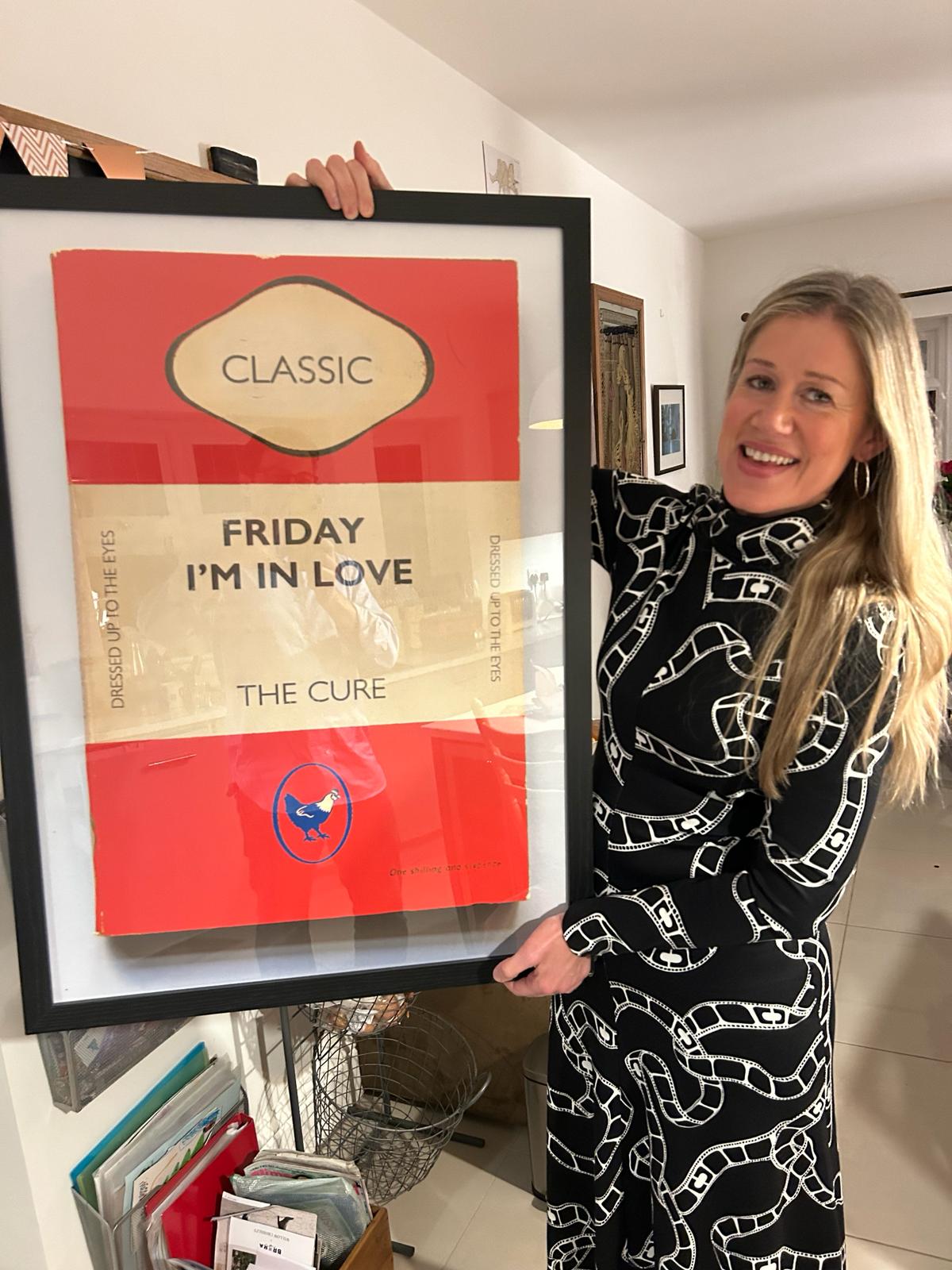ICMP Songwriting Tutors | BBC 6 Music | Musicology
Learn more about the insights and advice our Songwriting team shared on BBC 6 Music…
ICMP's Songwriting team has joined DJ and broadcaster Huw Stephens' new BBC Radio 6 Music show as Musicologists.
Since January 2024, members of the Songwriting faculty have been interviewed by Huw each week to discuss different aspects of the songwriting process.
The slot has seen Professor Sophie Daniels, Daniel Green, Head of Academic Development, and tutor Anjali Perinparaja explore song structures, techniques and analyse contemporary tracks to learn more about how they are written and put together.

Here, we'll find out more about the songs they discussed and the insights they shared during the first four episodes.
Sophie Daniels | Lyrics and Rhyme
The majority of songs rhyme and this is what makes them different from other forms of creative writing. The concept of rhyme in a song context focuses on the relationship between words, music and the human voice. Rhymes organise the songs for the listener, they create flow, pace, balance, emotion and more.
There are no rules in songwriting - at ICMP, we talk about tools, not rules in songwriting.
However, if you do break traditional rules, then you need to be good at them in the first place and this is true with rhyme."
Here are some songs that use rhyme in different ways.
The Staves | 'All Now'
In this instance, the rhyme is frantic. The rhymes are exact and on the final vowel sound of each phrase to help build up the pace and emotion.
Tori Amos | 'Silent All These Years'
Not all songs have to rhyme - and this is a clever song as it really draws attention to how it doesn't, leaning into what makes it different.
Frank Turner | 'Make America Great Again'
The vast majority of song lyrics are conversational so it's great to use half rhymes or imperfect rhymes. That means using two words that sound similar to each other to create this and Frank Turner does it well with this track. Here, he's rhyming 'the cheek of it' with 'special relationship'. They sound similar but are different and it lends a real cheekiness to the song.
Eminem | 'Business'
Rappers are the modern day geniuses of rhyme and lyrical craft. They work with different types of rhyme, with rhyme placement, taking one rhyme scheme and disrupting it with another. I'm very fond of saying how if Shakespeare was alive now, he'd be a rapper.
Eminem is among my favourite rappers as he brings together technical expertise with an emotional narrative as well as being incredibly funny.
Daniel Green | Epizeuxis Repetition in Songwriting
Epizeuxis is the concept of repeating a word or phrase in a song in quick succession. In tracks like the Righteous Brothers' 'You’ve Lost that Loving Feeling', Nirvana's 'All Apologies', and New Dad's 'I Don’t Recognise You', you can hear how this technique has been adopted.
When we're dealing with words or phrases that are repeated over and over, it adds a sense of forcefulness to a word or phrase."
The more you say it, it takes on a slightly different meaning, the words can be emphasised or have a new dimension. You can detect Epizeuxis in a variety of different art forms alongside songwriting too including Shakespeare's plays.
Sophie Daniels | Song Structures | The Middle Eight

All contemporary songs have a structure. As music listeners, we're used to encountering this and come to songs expecting them to be formed in a certain way. It's similar to how you go to see a play and expect different acts or read a book and expect it to be made up of chapters.
In songwriting, the verse-chorus-verse-chorus song structure with a middle eight is among the most common. You might have a pre-chorus or a bridge but this is one of the most well-known forms.
Some examples are below:
David Bowie | 'Changes'
This has a classic middle eight and offers something slightly different from the previous lyrical and musical content. At this point in the song, we are ready to hear something else happening. It also relates to the rest of the song and allows us to hear the chorus in a different way.
Pet Shop Boys | 'It's a Sin'
Perhaps one of the best middle eights of all time. In this case, the middle eight is the confession and the reason the song exists. When you're up and dancing, the middle eight also offers a pause and some anticipation for the final chorus.
The Cure | 'Friday I’m in Love'
Is there a chorus here? Some writers manage to not have a chorus that allows you to feel like you're in a chorus all the time. This song is charming, wistful, and full of love like Robert Smith. The middle eight is meaningless, beautiful and lovely, all at the same time.
Anjali Perin | Gossip | 'Crazy Again'
Many songs work on a triangle of harmony, melody and rhythm and many songwriters like to move between the three.
Gossip's new song is based on three chords across the verse and a chorus that kicks off from the intro. We have a synth line, at the start, using an arpeggio riff. An arpeggio is a chord that you might effectively play with three or more notes together but is broken up.
The start of the song has minimal instrumentation, which is great at laying Beth Ditto's voice bare, giving plenty of space to the lyrics to let us into the story of the song. This arrangement technique draws you into the story, and makes you feel part of it. As the listener, it is like you are on a little rope that brings you up close and personal to the song itself to create a mood and emotion in the listener.
The melody line is also very expressive, outlining a minor scale pattern, over the simple harmony, and is similar to how Gossip’s iconic track 'Heavy Cross' was recorded over a decade ago - this was also produced by Rick Rubin.
Another example of a song that does is the opening of 'Smells Like Teen Spirit' by Nirvana which gives lots of space to Kurt Cobain's opening vocals.
With any kind of song, it's a journey with little increments and ideas that dart in and out. The use of motifs helps keep it interesting and the listener engaged too.
One example is a lovely high guitar riff sitting above the main body of the song that repeats at different points. If you listen on, it’s displaced later in the song and put over a slightly different beat which changes how you hear it.
Listen to Huw Stephens' show to hear more insights from the ICMP team.
Write songs that last for generations
A great song can become truly timeless, remembered for generations as part of the world’s cultural legacy. Whether you want to craft a killer melody or pen poetic lyrics, our tutors will teach you everything you want to know, including all the production, performance, professional and entrepreneurial skills needed to ensure that your unique creations get the recognition they deserve. You’ll also benefit from A&R-style critique sessions, collaborative opportunities, access to fully equipped live rooms, recording studios and tech suites, and a community of inspiring contacts and friends.
To catapult your songwriting and music career to a whole new level, email our friendly Admissions Team at enquiries@icmp.ac.uk or give them a call on 020 7328 0222.
Songwriting courses
A great song can become truly timeless, remembered for generations as part of the world’s cultural legacy. Whether you want to craft a killer melody or pen poetic lyrics, our tutors will teach you everything you want to know, including all the production, performance, professional and entrepreneurial skills needed to ensure that your unique creations get the recognition they deserve. You’ll also benefit from A&R-style critique sessions, collaborative opportunities, access to fully equipped live rooms, recording studios and tech suites, and a community of inspiring contacts and friends.
To catapult your songwriting and music career to a whole new level, email our friendly Admissions Team at enquiries@icmp.ac.uk or give them a call on 020 7328 0222.




